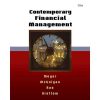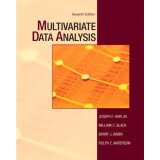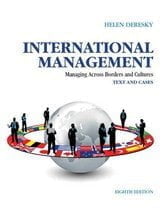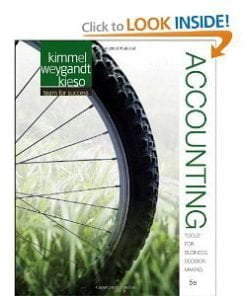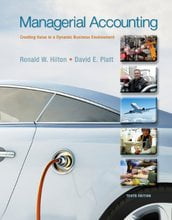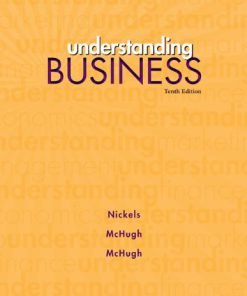Solution Manual for Aerodynamics for Engineers 5th Edition by Bertin
$35.00 Original price was: $35.00.$26.50Current price is: $26.50.
Solution Manual for Aerodynamics for Engineers 5th Edition by Bertin
Solution Manual for Aerodynamics for Engineers 5th Edition by Bertin
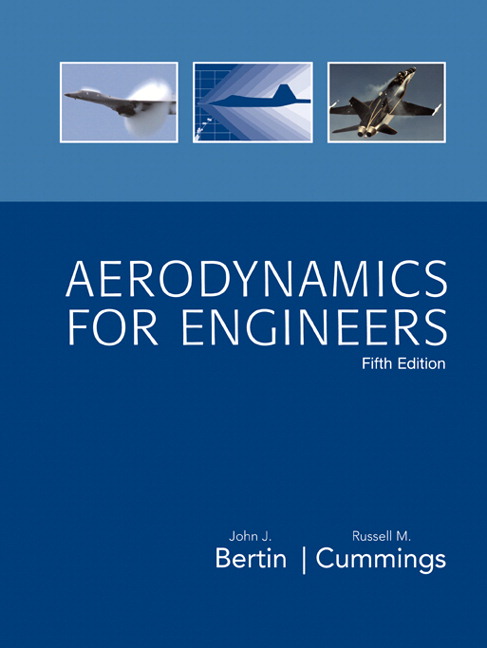
Product details:
- ISBN-10 : 0132272687
- ISBN-13 : 978-0132272681
- Author: John J. Bertin, Russell Mark Cummings
From low-speed through hypersonic flight, this book merges fundamental fluid mechanics, experimental techniques, and computational fluid dynamics techniques to build a solid foundation in aerodynamic applications. Many references are recent publications by the world’s finest aerodynamicists with expertise in subsonic, transonic, supersonic, and hypersonic aerodynamics.
Table contents:
CHAPTER 1 WHY STUDY AERODYNAMICS? 1
1.1 Aerodynamics and the Energy-Maneuverability Technique 2
1.1.1 Specific Excess Power 6
1.1.2 Using Specific Excess Power to Change the Energy Height 7
1.1.3 John R. Boyd Meet Harry Hillaker 8
1.1.4 The Importance of Aerodynamics to Aircraft Performance 8
1.2 Solving for the Aerothermodynamic Parameters 8
1.2.1 Concept of a Fluid 8
1.2.2 Fluid as a Continuum 8
1.2.3 Fluid Properties 10
1.2.4 Pressure Variation in a Static Fluid Medium 17
1.2.5 The Standard Atmosphere 22
1.3 Description of an Airplane 26
1.4 Summary 27
Problems 28
References 32
CHAPTER 2 FUNDAMENTALS OF FLUID MECHANICS 33
2.1 Introduction to Fluid Dynamics 34
2.2 Conservation of Mass 36
2.3 Conservation of Linear Momentum 40
2.4 Applications to Constant-Property Flows 46
2.4.1 Poiseuille Flow 46
2.4.2 Couette Flow 50
2.4.3 Integral Equation Application 52
2.5 Reynolds Number and Mach Number as Similarity Parameters 55
2.6 Concept of the Boundary Layer 63
2.7 Conservation of Energy 65
2.8 First Law of Thermodynamics 66
2.9 Derivation of the Energy Equation 68
2.9.1 Integral Form of the Energy Equation 71
2.9.2 Energy of the System 71
2.9.3 Flow Work 72
2.9.4 Viscous Work 73
2.9.5 Shaft Work 73
2.9.6 Application of the Integral Form of the Energy Equation 74
2.10 Summary 76
Problems 76
References 87
CHAPTER 3 DYNAMICS OF AN INCOMPRESSIBLE, INVISCID FLOW FIELD 88
3.1 Inviscid Flows 89
3.2 Bernoulli’s Equation 90
3.3 Use of Bernoulli’s Equation to Determine Airspeed 93
3.4 The Pressure Coefficient 96
3.5 Circulation 99
3.6 Irrotational Flow 102
3.7 Kelvin’s Theorem 103
3.7.1 Implication of Kelvin’s Theorem 104
3.8 Incompressible, Irrotational Flow and the Velocity Potential 104
3.8.1 Irrotational Condition 105
3.8.2 Boundary Conditions 105
3.9 Stream Function in a Two-Dimensional, Incompressible Flow 107
3.10 Relation between Streamlines and Equipotential Lines 109
3.11 Superposition of Flows 112
3.12 Elementary Flows 113
3.12.1 Uniform Flow 113
3.12.2 Source or Sink 114
3.12.3 Doublet 116
3.12.4 Potential Vortex 117
3.12.5 The Vortex Theorems of Helmholtz 120
3.12.6 Summary of Stream Functions and of Potential Functions 123
3.13 Adding Elementary Flows to Describe Flow Around a Cylinder 126
3.13.1 Velocity Field 126
3.13.2 Pressure Distribution on the Cylinder 128
3.13.3 Lift and Drag 130
3.14 Lift and Drag Coefficients as Dimensionless Flow-Field Parameters 134
3.15 Flow Around a Cylinder with Circulation 139
3.15.1 Velocity Field 139
3.15.2 Lift and Drag 140
3.15.3 Applications of Potential Flow to Aerodynamics 142
3.16 Source Density Distribution on the Body Surface 144
3.17 Incompressible, Axisymmetric Flow 149
3.17.1 Flow Around a Sphere 150
3.18 Summary 152
Problems 152
References 165
CHAPTER 4 VISCOUS BOUNDARY LAYERS 166
4.1 Equations Governing the Boundary Layer for a Steady, Two-Dimensional, Incompressible Flow 167
4.2 Boundary Conditions 170
4.3 Incompressible, Laminar Boundary Layer 171
4.3.1 Numerical Solutions for the Falkner-Skan Problem 174
4.4 Boundary-Layer Transition 189
4.5 Incompressible, Turbulent Boundar
People also search:
aerodynamics for engineers 6th edition
aerodynamics for engineers bertin
aerodynamics for engineers pdf
aerodynamics for engineers
c5 corvette aerodynamics
Related products
Solution Manual
Solution Manual
Solution manual for Accounting: Tools for Business Decision Making Kimmel Weygandt Kieso 5th Edition
Solution Manual
International Business Competing in the Global Marketplace Hill 10th Edition Solutions Manual
Solution Manual
Management Information Systems Managing the Digital Firm Laudon 14th Edition Solutions Manual
Solution Manual
Solution Manual
Understanding Business Nickels 10th Edition Solutions Manual



